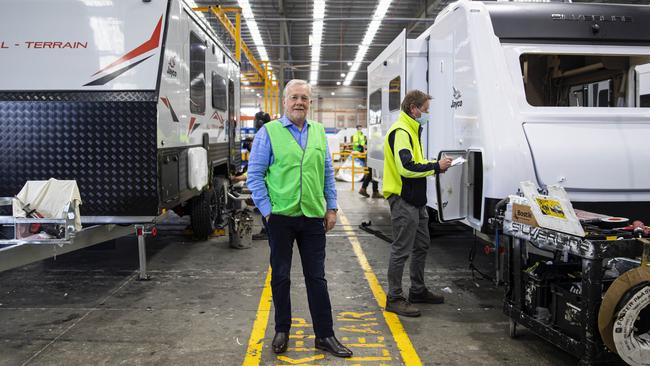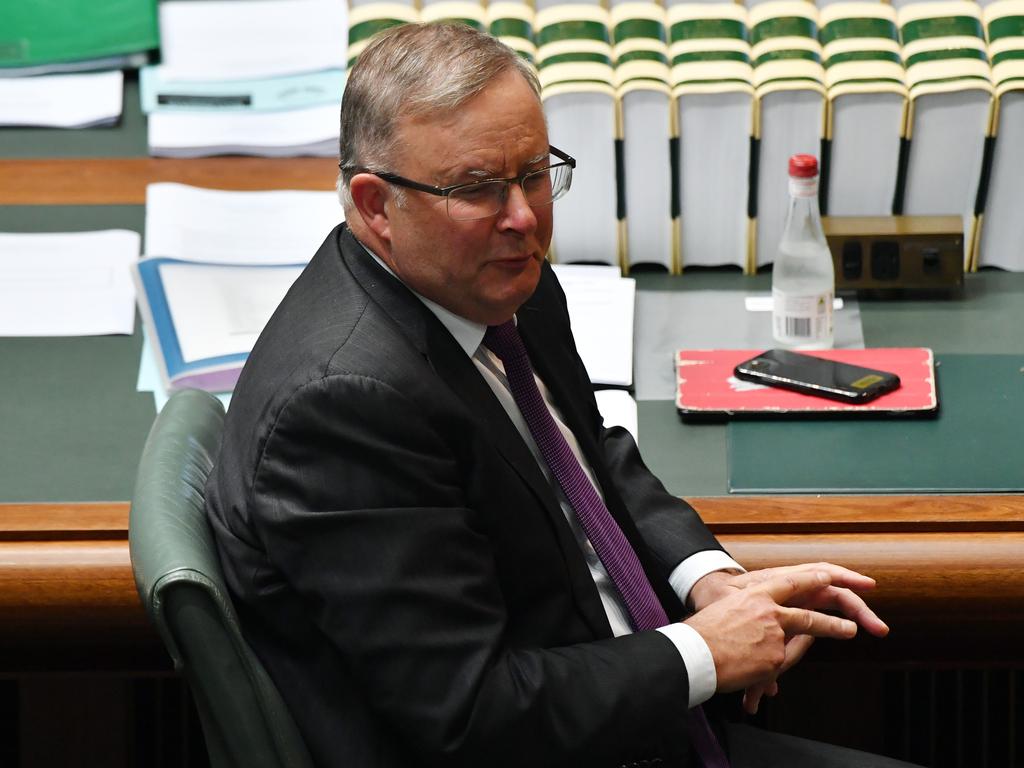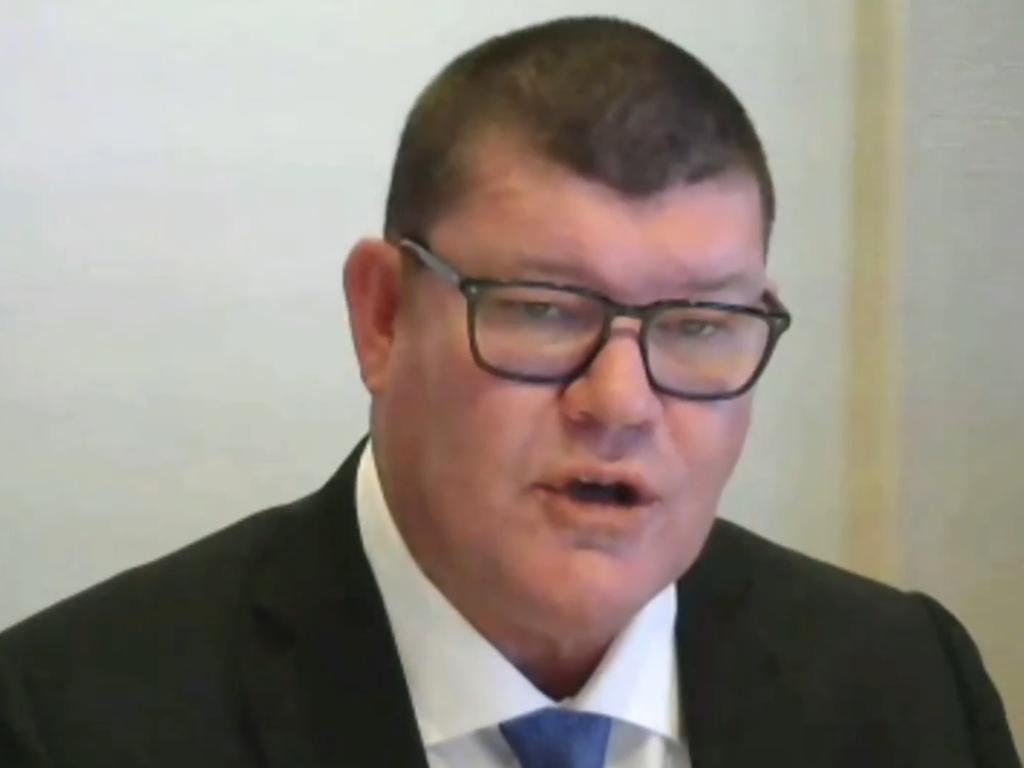Employers vow to hire more staff and invest
Anthony Pratt and Jayco caravans owner Gerry Ryan say they’ll use budget incentives to accelerate investment and create jobs.

Australia’s biggest employers have backed Josh Frydenberg’s business incentives and wage subsidies, and vowed to invest and hire more staff, as union leaders and Labor warned the government’s new $4bn jobs scheme was open to rorting and could push older people out of work.
Billionaire manufacturer Anthony Pratt and Jayco caravans owner Gerry Ryan — who between them employ more than 6000 people — said they would use the budget business incentives to accelerate investment and create more jobs.
Scott Morrison on Wednesday called on the private sector, which employs eight out of 10 Australians, to start “firing up again” and lead the nation’s COVID recovery. “That is everything from giving them the support to hire new people, to ensure that they make the investments so their businesses can grow again as we come out of this COVID-19 recession,” the Prime Minister said.
“It’s about giving them confidence and making sure … their employees have got the right training and the right skills.”
The clash between Mr Morrison and Anthony Albanese over jobs and skills is emerging as a key battleground ahead of a potential early election next year, with the Labor leader delivering his first budget-in-reply speech on Thursday night.
While Labor has backed the government’s fast-tracking of personal income tax cuts, which will start flowing by Christmas, and is likely to support the wage-subsidy scheme for new workers aged under 35, Mr Albanese will use the speech to announce major economic and social policies focused on productivity, jobs and skills.
The government’s tax cuts will be included in an omnibus bill to be introduced to the parliament on Thursday, with the Australian Taxation Office saying Labor will need to flag its support for all the reforms before it can implement the personal income tax changes.
Labor was on Wednesday examining the omnibus legislation, which contains seven budget announcements including $2bn in tax incentives for research and development, a $4.9bn loss carry-back scheme, more tax concessions for small business and the $26.7bn package allowing businesses to write off the full value of assets purchased in a single year. The Australian understands Labor is likely to support the entire omnibus bill.
Mr Ryan, the Jayco founder who sells more than $500m worth of caravans a year from his southeast Melbourne factory, said business confidence would surge after Tuesday’s budget and committed to fast-track manufacturing and property investments.
Companies with turnovers of up to $5bn can write-off the full value of an asset in a single year rather than depreciate the amount over several years, which will provide a big boost for capital-intensive industries such as manufacturing. “I certainly have more confidence … and I’m going to accelerate some property investments and build some additional manufacturing facilities,” Mr Ryan said. “I’m doing this more quickly than I would have prior to the budget. So policies like the instant writedown will definitely help.”
Mr Pratt, the billionaire executive chairman of cardboard box maker Visy, has seen his US business Pratt Industries thrive under President Donald Trump’s tax policies, including accelerated depreciation schedules for big capital investments. He predicted similar Australian policies would also be successful.

“It will be a real boost to Australian manufacturing. Reducing the cost of capital will spur capital formation and thereby create more jobs,” Mr Pratt said.
Mr Ryan said the government’s income tax cuts would also act as a stimulus. “It allows business to keep people employed and put more people on, and then they spend more dollars out there, buy more goods and therefore GST gets paid. Companies make more profits and therefore pay more company tax and payroll tax.”
Billionaire investor Alex Waislitz, of Thorney Investments Group, said the budget contained “the right amount of stimulus measures and incentives” to get Australia through the worst of the COVID-19 economic impact.
“I expect that a number of the infrastructure, energy and depreciation measures announced will directly benefit many of the companies in which Thorney invests,” Mr Waislitz said.
“The only thing missing to have made the budget a slam dunk in my view was a commitment to further extensive industrial relations reform to help bring more flexibility and competitiveness into the workforce.”
Under attack from Labor and the unions, Mr Frydenberg defended his $4bn wage-subsidy scheme for young Australians, insisting a “double-barrel” eligibility test would not force older workers out of jobs.
With Labor still likely to back the JobMaker hiring credit policy, assuring passage through the Senate, opposition Treasury spokesman Jim Chalmers said the party was concerned nearly one million unemployed Australians would not qualify for the subsidy.
Under the subsidy plan, in place for 12 months, eligible employers would receive $200 a week for hiring a worker aged 16 to 29, or $100 a for Australians aged 30 to 35, with maximum benefits of $10,400 per new position created. New employees must work at least 20 hours a week. To receive subsidies, employers must prove the new hirings had increased their employee headcount and wages bill compared to September 30. “There’s a double-barrel test for the eligibility for a business to receive that JobMaker hiring credit,” Mr Frydenberg said.
“The integrity test … is designed to support additional people coming on to that business and that will ensure that those 450,000 people that we’re supporting will get the benefit of those businesses taking those incentives to hire and to grow.”
ACTU secretary Sally McManus said the JobMaker wage-subsidy program would become “JobReplacer” if employers were able to cut the hours of part-time workers or lay off existing casual workers and replace them with unemployed people subsidised by taxpayers.
ACTU president Michele O’Neil said the program was “really open to being rorted”, with employers able to claim a double subsidy of $400 a week if they took on two low-paid young casual workers rather than $200 a week for an eligible full-time employee. She said the government should insert a condition that existing employees could not be displaced by subsidised workers.
Mr Morrison said older workers — who could attract wage subsidies under an existing hiring incentive program — would continue receiving support with a focus on Australians transitioning during the COVID-19 pandemic.
“The subsidy only applies for new places over and above what your current level of employment is. So if they drop the level of employment to take on other workers, they won’t get the subsidy,” he said. “It’s got to be new jobs over and above what’s there now. If you’re over 35 and you’re in that position, in many cases, you would have been still in that position ¬because of the support of JobKeeper.”
Australian Chamber of Commerce and Industry chief executive James Pearson said the hiring credits scheme would “tip the balance for many employers in favour of putting someone on”.
“Wage subsidies will have a particular impact in industries where restrictions are easing but growth is slow or inconsistent. Accommodation and food services firms have shed around 140,000 jobs since March. They will need to hire staff as more restrictions are eased,” he said.
He said the investment allowance could be “the single-biggest measure to swing the pendulum back to economic prosperity”. “Purchasing new equipment has a flow-on effect throughout the economy, from the producer through to the wholesaler and retailer. It will create jobs and stimulus right through the supply chain,” he said.
Business Council of Australia chief executive Jennifer Westacott said the $27bn business investment allowance would “create the pipeline of activity that’s going to create jobs”.
Additional reporting: Jared Lynch, Rosie Lewis, Ewin Hannan






To join the conversation, please log in. Don't have an account? Register
Join the conversation, you are commenting as Logout